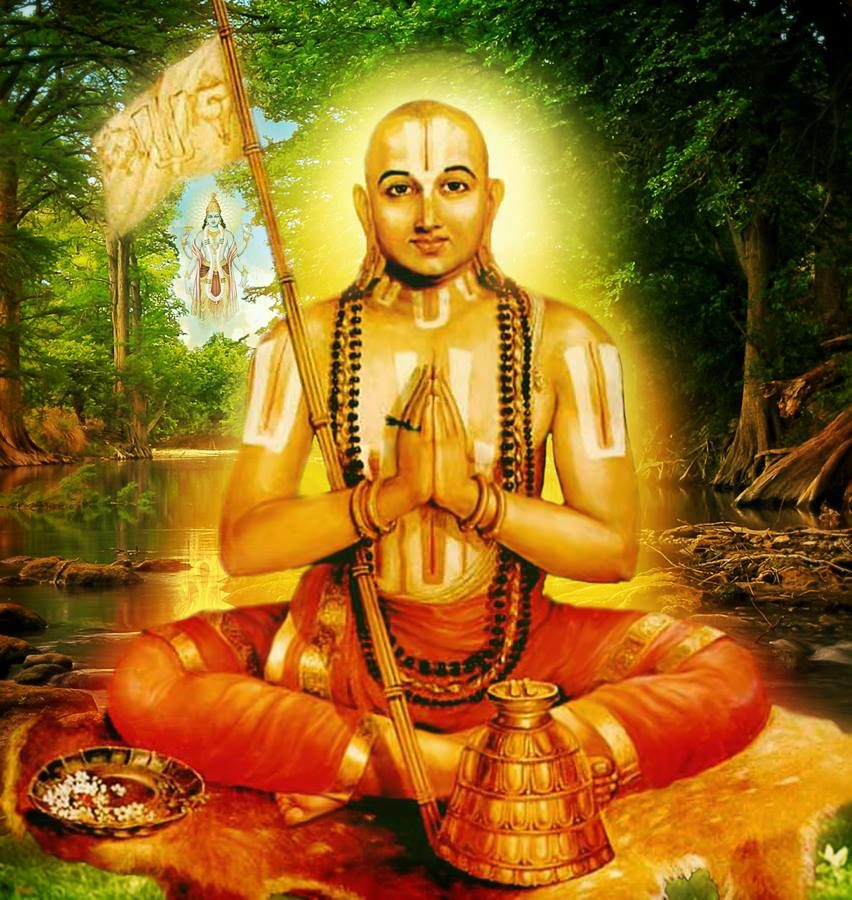|
Ramanujacharya was born near Chennai, Tamil Nadu and lived during 1017–1137. He composed philosophical works and committing to writing the special views that were being developed orally by Yamunacharya (the grandson of Nathamuni, the great Alver) and his predecessors, gave the system a solid foundation to the Vasishtadvaita or qualified non-dualism, one of the great Hindu Philosophies. He established Lakshmi-sampradaya, also known as Srivaishnavism.
Vasishtadvaita Philosophy: He propounded the philosophy so called as “Vasishtadvaita” or qualified non-dualism. Under the system, he proclaimed that the unity is not the sublation of all diversity but the subordination of diversity to unity. World, jiva and God (the absolute one) are true and liberation from bondage is also factually true. He refuted the Advaita doctrine of Shankara that the Brahman, the absolute as the non-dual being in whom the world of many is mere appearance ascribed by ignorance and not actually existing. Ramanuja questioned locus of ignorance, if it is in Brahman; Brahman is loaded with evil and becomes unworthy as a spiritual goal. Brahman (God):
Jiva (Soul) & Jagat (Nature):
Jivas are hold of oppressive Karma that generates the spiritual blindness of ignorance and impurity. God is untouched by karma and therefore absolutely pure. Srishti & Parlaya:
Liberation:
His Teachings:
Reference: Bhakti Schools of Vedanta – by Swami Tapasyananda, Sri Ramakrishna Math, Chennai.
0 Comments
Leave a Reply. |
Archives
July 2024
Categories |

 RSS Feed
RSS Feed